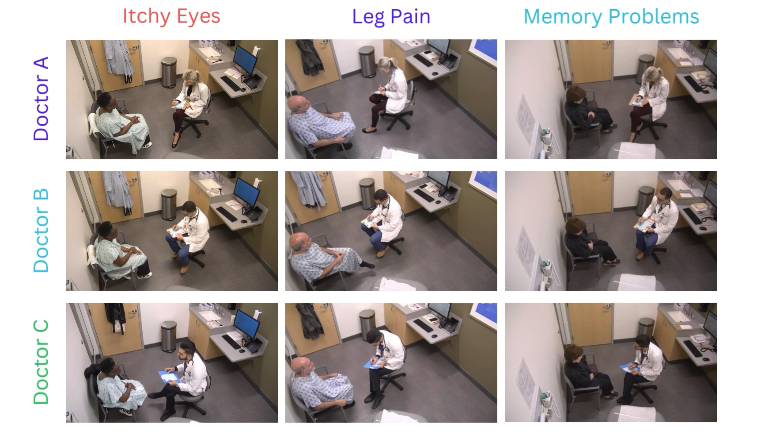We are teaming up with the Simulation Center at UT Southwestern to build the future of medical education.
- Advanced AI tools to automatically analyze, grade, and provide immediate feedback to medical students and other health professionals in training.
- Multi-modal Foundation Models for text, video, and audio to comprehensively perceive medical student encounters with patient actors
- Improving the quality, consistency, and efficiency of medical education training
Rubrics to Prompts: Assessing Medical Student Post-Encounter Notes with AI
Automatic Zero-Shot Grading of Medical Student Notes with Large Language Models ("Rubric to Prompts")
 OSCE Stations
OSCE Stations  Zero-shot GPT-4 OSCE Note Grading
Zero-shot GPT-4 OSCE Note Grading Not just grades, but also expanding to tailored Narrative Feedback for medical students and educator mentors.
Lab Awarded Azure Credit Grant for Accelerating Foundation Models Research
Rubrics to Prompts: Expert-level Performance Assessment and Feedback in Medical Education with Foundation Models
The project aims to establish and evaluate the effectiveness of AI-generated feedback on medical students’ post-encounter notes. Leveraging a dataset of 15,000 existing examples, the project plans to refine and evaluate feedback using metrics like factuality, fidelity, helpfulness, and actionability, ultimately aiming to improve feedback quality and timeliness.

We design machine learning algorithms that annotate and encode clinician-patient interactions so that accurate simulations of various scenarios can be produced for medical student education, practice, and testing.
The video here shows an example of our software annotating an interaction.
This video demonstrates our software annotating a doctor examining a patient via a mesh. You can also watch it on YouTube.
Prior Projects
The Jamieson Lab also specializes in designing machine learning algorithms and software tools for the following purposes:
- Representing complex spatiotemporal phenomena
- Spatial Biology (2D/3D, multimodal, & highly multiplexed tissue images)
- Advanced Image Analysis (CODEX, GeoMX, Hyperion, and more...)
 exploring spatial biology
exploring spatial biology Here is the video abstract for our study Interpretable deep learning uncovers cellular properties in label-free live cell images that are predictive of highly metastatic melanoma.
You can also watch it on YouTube.
We used a generative deep network to encode latent representation of live-imaged melanoma cells. Supervised machine-learning algorithms classified metastatic efficiency using latent cell representations. We validated classifier prediction on melanoma cell lines in mouse xenografts and interpreted metastasis-driving features in amplified generative cell image models.
Our study also made the cover of the issue.